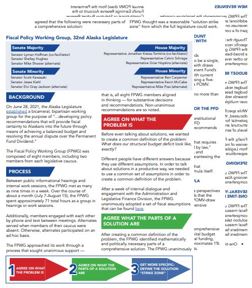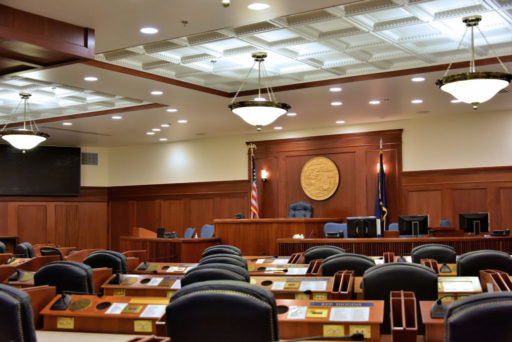 In July 2021, I participated in group discussions as a member of the Fiscal Policy Working Group (FPWG). The group was formed from members of both houses, from both political parties, and from all majority and minority caucuses. The genesis of the group came from an agreement made with legislative leaders to prevent a government shut down in June 2021. FPWG members were tasked by the presiding officers to provide recommendations back to the legislature on what measures the state could take to fix the imbalance between revenue and spending. The FPWG’s recommendations are provided below.
In July 2021, I participated in group discussions as a member of the Fiscal Policy Working Group (FPWG). The group was formed from members of both houses, from both political parties, and from all majority and minority caucuses. The genesis of the group came from an agreement made with legislative leaders to prevent a government shut down in June 2021. FPWG members were tasked by the presiding officers to provide recommendations back to the legislature on what measures the state could take to fix the imbalance between revenue and spending. The FPWG’s recommendations are provided below.
2021_Fiscal_Policy_Working_Group-Final_Report.pdf (akleg.gov)
The legislature has yet to seriously consider the working group’s recommendations as they were provided near the end of the 2021 Third Special Session and no substantial business was conducted during the Fourth Special Session.
At the thirty-thousand-foot level, the Long-term Fiscal Plan problem set can be broken down into two main components: a financial one, and a political one. The financial component is the simpler problem to solve. It’s an oversimplification to say that the options are to reduce spending or increase revenue, or some combination of the two. But it is a math problem and those are the levers that need to be moved! If solving the fiscal imbalance was as simple as choosing the right combination of levers, it wouldn’t take long to solve the problem. The political component can be visualized as combination locks on the fiscal levers. The locks represent complex relationships between political agendas, human relations, powerful lobbies, election cycles, and time.
Overcoming the inertia to do nothing about the fiscal imbalance requires a comprehensive solution that opens the political locks and operates the fiscal levers in a carefully orchestrated fashion.
The FPWG recommendations demonstrate a willingness by some members to overcome the inertia to do nothing. The lack of any progress in either of the 2021 Third and Fourth Special Sessions demonstrate a desire to maintain the status quo by those legislators in positions of power in the legislature. Those influential positions can be identified as the majority members of the ruling majority caucuses, the Speaker of the House and the Senate President, co-chairs of the powerful Finance Committees, and chairs of the Rules, Judiciary, and State Affairs Committees in both chambers, among others.
I expected less and was pleasantly surprised with the quality of the FPWG deliberations. I am not particularly happy with all the recommendations but the saying “the best compromise is one where neither side really likes the agreement” applies.
Unlocking levers requires the majority of legislators to agree on the combination of fiscal and political . As long as the legislature remains polarized, lock combinations will require political compromises.



